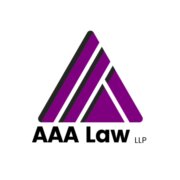Best Nonprofit & Charitable Organizations Lawyers in Toronto
Share your needs with us, get contacted by law firms.
Free. Takes 2 min.
List of the best lawyers in Toronto, Canada
About Nonprofit & Charitable Organizations Law in Toronto, Canada
Nonprofit and charitable organizations in Toronto play a crucial role in addressing social, cultural, educational, and environmental issues. These organizations operate under a unique legal framework that distinguishes them from for-profit businesses. While they share some regulatory similarities with for-profit entities, nonprofits are primarily driven by their mission and are eligible for certain tax exemptions. In Toronto, like the rest of Canada, nonprofits can be incorporated at the federal or provincial level, each with specific regulatory requirements and benefits. Navigating the legal landscape of setting up, managing, and dissolving a nonprofit requires a thorough understanding of relevant legislation and regulatory expectations, which is where legal guidance becomes essential.
Why You May Need a Lawyer
Engaging a lawyer specialized in nonprofit and charitable organizations can be invaluable for several reasons:
- Incorporation: Understanding whether to incorporate provincially or federally and ensuring compliance with respective processes and documentation.
- Governance: Establishing bylaws and governance structures that comply with legal standards and best practices.
- Charitable Status: Applying for charitable status with the Canada Revenue Agency (CRA) to gain tax exemptions and issue charitable receipts.
- Regulatory Compliance: Navigating complex regulatory frameworks, including fundraising regulations and annual reporting requirements.
- Risk Management: Ensuring proper risk management policies and procedures are in place to protect the organization and its directors.
- Dissolution: Handling the proper wind-up and dissolution of the organization, ensuring compliance with legal obligations.
Local Laws Overview
Operating a nonprofit or charitable organization in Toronto involves adherence to a variety of local laws and regulations:
- Ontario Not-for-Profit Corporations Act (ONCA): Governs not-for-profit corporations at the provincial level in Ontario.
- Canada Not-for-profit Corporations Act (CNCA): Applicable to federally incorporated organizations.
- Charitable Registration: Involves specific qualifications and ongoing compliance to maintain charitable status with the CRA.
- Fundraising and Advertising Standards: Organizations must comply with ethical guidelines and legal obligations regarding fundraising practices.
- Employment Law Compliance: Nonprofits must adhere to employment standards legislation provincially or federally as applicable.
- Privacy Legislation: Compliance with federal and provincial privacy laws, including the Personal Information Protection and Electronic Documents Act (PIPEDA).
Frequently Asked Questions
What is the difference between a nonprofit and a charity?
A nonprofit organization is an entity that operates for a public or social benefit rather than for profit. A charity is a type of nonprofit that is registered with the Canada Revenue Agency and can issue tax receipts for donations. Charities have more stringent requirements.
How do I start a nonprofit organization in Toronto?
Starting a nonprofit involves defining your mission, choosing a name, determining your incorporation level (either provincially or federally), drafting bylaws, appointing directors, and registering your organization. Legal advice is highly recommended to ensure compliance with all legal requirements.
Can a nonprofit organization earn a profit?
Yes, a nonprofit can earn a profit, but those profits must be used to further the organization’s mission rather than distributed to directors or members.
What is required to apply for charitable status in Canada?
To apply for charitable status, an organization must demonstrate a charitable purpose recognized by the Canada Revenue Agency, create a governing document, and submit a complete application to the CRA alongside supporting documentation and a detailed narrative of activities.
Are there tax advantages for nonprofit organizations?
Yes, registered charities are exempt from paying income tax and can issue tax receipts for donations. Nonprofits may benefit from other tax exemptions but cannot issue tax receipts.
What are bylaws and why are they important?
Bylaws are internal rules that govern how an organization operates, including board meetings, elections, and duties of directors. They ensure regulatory compliance and operational clarity.
How often must a nonprofit file annual reports?
Generally, nonprofits must file an annual return with their incorporating body (e.g., Ontario or federal), which includes financial statements and other compliance documentation.
What fundraising regulations must our nonprofit comply with?
Fundraising activities must comply with ethical standards and regulations including honest representations, privacy of donor information, and accountability in the use of funds.
Can a nonprofit organization engage in political activities?
Nonprofits and charities can engage in some political activities, but they must remain nonpartisan. Charities have significant restrictions on the amount of resources devoted to political activities.
What is required to dissolve a nonprofit organization?
Dissolution requires a formal process including a resolution by members, settling of debts and liabilities, distribution of assets according to bylaws or legal requirements, and filing the appropriate paperwork with the relevant authorities.
Additional Resources
The following resources can provide valuable information and support for nonprofits in Toronto:
- Ontario Ministry of Government and Consumer Services: Offers guidance on the Ontario Not-for-Profit Corporations Act.
- Canada Revenue Agency: Provides resources on charitable registration and compliance.
- Imagine Canada: Supports charities and nonprofits with various tools and advocacy efforts.
- Pillar Nonprofit Network: Offers resources and networking opportunities for nonprofit leaders.
- Toronto Community Foundation: Provides funding opportunities and resources for local nonprofits.
Next Steps
If you require legal assistance for your nonprofit or charitable organization, here are some steps to consider:
- Consult a Specialist Lawyer: Seek out legal professionals experienced in nonprofit and charitable law for tailored advice.
- Review Your Needs: Clearly identify your organization’s needs and challenges to better communicate with your legal advisor.
- Gather Documentation: Compile relevant documents such as bylaws, incorporation papers, and financial statements for review.
- Explore Pro Bono Services: Look for nonprofit legal clinics or pro bono legal services that may be available to assist with your needs.
- Engage the Board: Ensure that your board is informed and prepared to support the process of seeking legal advice and implementing recommendations.
Lawzana helps you find the best lawyers and law firms in Toronto through a curated and pre-screened list of qualified legal professionals. Our platform offers rankings and detailed profiles of attorneys and law firms, allowing you to compare based on practice areas, including Nonprofit & Charitable Organizations, experience, and client feedback.
Each profile includes a description of the firm's areas of practice, client reviews, team members and partners, year of establishment, spoken languages, office locations, contact information, social media presence, and any published articles or resources. Most firms on our platform speak English and are experienced in both local and international legal matters.
Get a quote from top-rated law firms in Toronto, Canada — quickly, securely, and without unnecessary hassle.
Disclaimer:
The information provided on this page is for general informational purposes only and does not constitute legal advice. While we strive to ensure the accuracy and relevance of the content, legal information may change over time, and interpretations of the law can vary. You should always consult with a qualified legal professional for advice specific to your situation.
We disclaim all liability for actions taken or not taken based on the content of this page. If you believe any information is incorrect or outdated, please contact us, and we will review and update it where appropriate.














